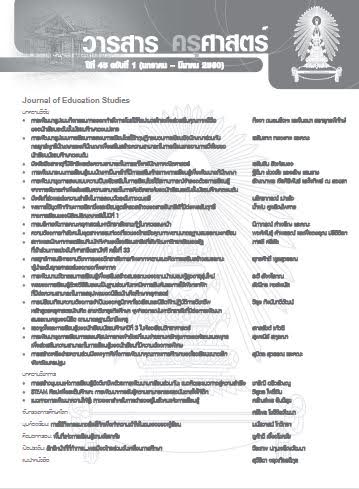ความต้องการกำลังคนในอุตสาหกรรมท่องเที่ยวของไทยเชิงคุณภาพตามมาตรฐานสมรรถนะอาเซียน
Keywords:
ความต้องการกำลังคนเชิงคุณภาพ, อุตสาหกรรมท่องเที่ยว, มาตรฐานสมรรถนะอาเซียน, QUALITATIVE MANPOWER NEEDED, TOURISM INDUSTRY, ASEAN STANDARDSAbstract
การวิจัยครั้งนี้มีวัตถุประสงค์ (1) เพื่อวิเคราะห์กรอบและตัวชี้วัดคุณภาพกำลังคนในอุตสาหกรรมท่องเที่ยวของไทยตามมาตรฐานสมรรถนะอาเซียน และ (2) เพื่อวิเคราะห์ความต้องกำลังคนในอุตสาหกรรมท่องเที่ยวของไทยเชิงคุณภาพตามมาตรฐานสมรรถนะอาเซียน กลุ่มตัวอย่างที่ใช้ในการวิจัย ได้แก่ สถานประกอบการประเภทที่พักขนาดกลางขึ้นไปทั่วประเทศไทย จำนวน 396 แห่ง เครื่องมือที่ใช้ในการวิจัย ได้แก่ แบบสัมภาษณ์เพื่อวิเคราะห์กรอบและตัวชี้วัดและแบบสอบถามเพื่อวิเคราะห์ความแตกต่างระหว่างสภาพปัจจุบันและสภาพที่พึงประสงค์ ผลการวิจัย พบว่ากรอบและตัวชี้วัดคุณภาพกำลังคนในอุตสาหกรรมท่องเที่ยวของไทยตามมาตรฐานสมรรถนะอาเซียน มีจำนวน 18 องค์ประกอบ 90 ตัวชี้วัด และผลการวิเคราะห์ความคิดเห็นของสถานประกอบการเกี่ยวกับคุณภาพกำลังคนในอุตสาหกรรมท่องเที่ยวของไทยตามมาตรฐานสมรรถนะอาเซียนภาพรวมและจำแนกตามองค์ประกอบ พบว่าอยู่ในระดับมากแต่ไม่เพียงพอต่อความต้องการของสถานประกอบการอย่างมีนัยสำคัญทางสถิติที่ระดับ .001 โดยเฉพาะความสามารถด้านภาษาอังกฤษ การจัดการทรัพยากรมนุษย์ และสมรรถนะร่วมในหน้าที่หลัก ด้วยเหตุนี้ทุกภาคส่วนที่เกี่ยวข้องต้องร่วมมือกันเร่งรัดและผลักดันการพัฒนาโดยเฉพาะด้านการศึกษาเพื่อเสริมสร้างขีดความสามารถกำลังคนในอุตสาหกรรมท่องเที่ยวของไทยให้ได้มาตรฐานรองรับการเปิดเสรีประชาคมอาเซียนต่อไป
This research has the following objectives: (1) to analyses the framework and the indicators of qualitative manpower in Thailand’s tourism industry according to ASEAN standards, and (2) to analyses the qualitative manpower needed in Thailand’s tourism industry according to ASEAN standards. The sample size of this research consisted of medium and large sized hotel establishments (60 rooms or more) throughout the entire the Kingdom, with a total of 396 establishments. The researcher interviewed 5 experts to verify the framework and the indicators and then applied questionnaires to understand the gaps between the current conditions and desired conditions. The result found that the overall competencies (i.e. core competence, generic competence and functional competence) of manpower in Thailand’s tourism industry in accordance with ASEAN standards were at a high level. However, it was not sufficient to meet the needs of establishments, especially the needs of English language proficiency, human resource development and common core competencies from high to low, respectively. The difference between the current conditions and desired conditions is statistically significant at the .001 level. The findings suggest that the quality of manpower in Thailand’s tourism industry should be improved immediately, not only to meet the needs of establishments but also to match international standards.




